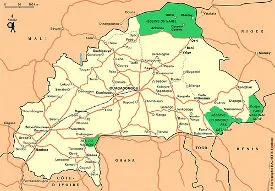
Burkina Faso will hold its general election on 11 October 2015. This election will be the first in 27 years as the country moves forward in its political transition. It is therefore crucial that all actors, including personnel in charge of securing elections, have a good understanding of the electoral process.
It is within this context that the Electoral Commission of Burkina Faso known as CENI with the technical support of International IDEA and the African Union Commission (AUC) through its Democracy and Electoral Unit (DEAU) and the financial support of the Deutsche Gesellschaft fur Internationale Zusammenarbeit (GIZ) organized a five-day BRIDGE workshop from 27 to 31 July in Ouagadougou. The workshop gathered stakeholders in charge of the security of the electoral process from the CENI, the police, the military and the civil society.
There is a willingness for Burkinabes to go to the polls. This is particularly apparent in the 27 per cent increase of the electoral list compared to the 2012 list. But not all Burkinabes believe the poll will be peaceful. As a non-partisan entity in the electoral process, the civil society will play a crucial role.
This BRIDGE training aimed to develop the capacity of officials from various African electoral management bodies (EMBs) for effective management of all electoral processes and administrative activities. In his speech, Guy Tapoko, head of the DEAU, emphasized that this workshop was also part of a vast program of the AU, working alongside member states to strengthen democracy through holding free and fair elections.
The modules of the training were Introduction to electoral administration, Electoral security, and Polling, counting and results. All 30 participants found the workshop enriching and many said it helped them to better understand issues related to election security. One of the highlights of this workshop was the development by participants of a handbook for security forces on electoral security.



